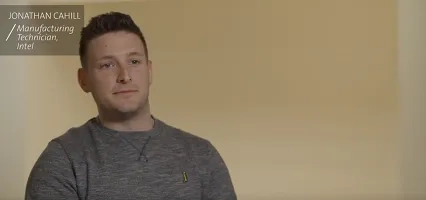Profiles
#GradStories Jonathan Cahill, Manufacturing Technician, Intel
25 Jan 2023, 13:36
Bachelor Mechanical Engineering, TU Dublin (Tallaght), 2017

gradireland Editorial advice
This describes editorially independent and impartial content, which has been written and edited by the gradireland content team. Any external contributors featuring in the article are in line with our non-advertorial policy, by which we mean that we do not promote one organisation over another.
